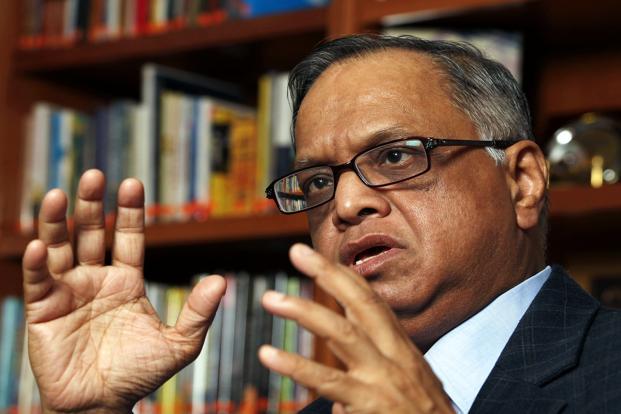In a recent interview, Infosys co-founder and face Narayan Murthy suggested that Indians should work for 60 hours a week for the next 2-3 years to combat the economic damage caused by the CoVid-19 lockdown.
He was talking to ET in a video-conference interview when he was asked about his take on big reforms the country should take to usher in economic recovery in the wake of the CoVid-19 lockdown.
“We the citizens must decide to first do what we can to make the country stronger. Once we’re all able to work, once the lockdown is lifted, we should pledge to 60 hours a week for the next 2-3 years. We will fast track the economy. We will grow the economy much faster.”
Murthy’s suggestion comes in the light of the economic collapse the country is facing due to the complete lockdown that started in the middle of March and will have completed 2 months by the time it lifts towards the end of May. According to reports, less than a quarter of India’s $2.8 trillion economy is functional and estimated to lose over Rs 32,000 crore ($4.5 billion) every day during the lockdown. Murthy purports to put the onus of reviving the economy on individual efforts, other than top-level economic reform and strategic disruptions by the government.
However, Murthy’s comments did not go down well with a large section who took to social media to voice out their dissent. Many believe that Indians already work unduly long hours and are often exploited by the employers. Some believe Murthy’s suggestion to work even longer hours is mired in his capitalistic tendencies as the head of Infosys, a large service-oriented company. While the official work hours for businesses in India are touted to be 9-5 — a typical 8 hour day– they usually spill on to 10-12 hour days. A report by the National Sample Survey Office (NSSO) shows that workers in Indian cities are working an average of 53 to 54 hours a week. This is partly because when wages are too low, people have to work longer hours to earn enough.
This 10-hour day work culture is not unique to India alone, though. From China to the Indian-subcontinent, a combination of intense competition, low-incomes, and high populations have led to a somewhat neglected idea of a work-life balance. Indians working abroad have often compared the unfavourable working conditions in India to the ones they have experienced abroad. The work culture in Asia is often criticised for being most intense, but “least efficient and healthy“. Murthy’s well-meaning comment might have just normalised this culture that rewards longer working hours over efficiency. “It would have been better if you would have said that every Indian should enhance his productivity rather than quantifying the efficiency with the number of hours someone should put in.”, a comment said.
Business heads and CEOs have often come under fire for expecting their employees to work longer hours than even stipulated by law as maximum working hours. Their vested interests often conflict with labour welfare. Alibaba founder and CEO Jack Ma had famously endorsed China tech sector’s infamous 12-hours-a-day, six-days-a-week routine, so common it earned the moniker 996.
The advocacy for working longer hours also begs the question of the ethics involved in expecting 12 hours of work while paying for 8 hours in a sector that does hour-based billings to its foreign clients.
However, there was some support for Murthy’s suggestions. “If you think it is the govt. or someone else’s responsibility to ensure economic revival, that’s an unrealistic expectation. There’s no magic wand” said one comment.
Sure enough, these are extraordinary times and normal rules of operations may not apply. While it’s important to protect labour interests at all times, in an unprecedented event like this, everyone is expected to take a personal hit and strive to combat a situation noone is personally responsible for.
Post-pandemic, if nothing else, Murthy’s loaded comment should open up the debate about longer working hours vs increased productivity to a larger section of the workforce.
In a world where more countries are opening up to the possibility of 4-day workweeks and even homegrown companies like TCS are considering making 75% of their employees work-from-home, the idea of longer working hours may not find many takers.
